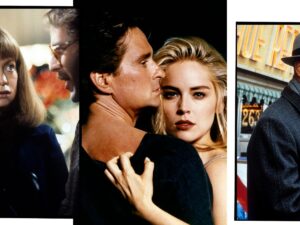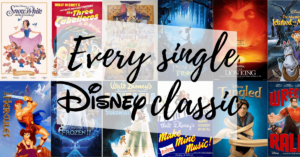
Movies and books have always been two of the most beloved forms of storytelling. When these two mediums intersect, the result can be a powerful and enriching experience for audiences. Adaptations of books into films offer a unique opportunity to see beloved characters and intricate plots brought to life, but they also come with their own set of challenges and expectations. Here, we explore some iconic movies based on books, the process of adaptation, and the impact these films have had on both readers and moviegoers.
Iconic Adaptations
- “The Lord of the Rings” Trilogy (2001-2003)
- Book: J.R.R. Tolkien’s “The Lord of the Rings”
- Director: Peter Jackson
- Synopsis: This epic fantasy saga follows the quest to destroy the One Ring, a powerful artifact created by the dark lord Sauron. The journey takes the characters through the richly detailed world of Middle-earth.
- Impact: The trilogy was a monumental success, both critically and commercially, earning numerous awards, including multiple Academy Awards. It brought Tolkien’s complex world to a wider audience and set new standards for fantasy filmmaking.
- “Harry Potter” Series (2001-2011)
- Book: J.K. Rowling’s “Harry Potter” series
- Directors: Various, including Chris Columbus, Alfonso Cuarón, Mike Newell, and David Yates
- Synopsis: The series follows the life of a young wizard, Harry Potter, and his friends as they attend Hogwarts School of Witchcraft and Wizardry and battle the dark wizard Voldemort.
- Impact: The films became a cultural phenomenon, closely following the books and bringing Rowling’s magical world to life. The franchise has had a lasting influence on popular culture and inspired a new generation of readers and viewers.
- “To Kill a Mockingbird” (1962)
- Book: Harper Lee’s “To Kill a Mockingbird”
- Director: Robert Mulligan
- Synopsis: Set in the Depression-era South, the film deals with serious issues such as racial injustice and moral growth through the eyes of young Scout Finch and her father, Atticus Finch, a principled lawyer.
- Impact: The film, like the book, is considered a classic and has been praised for its faithful adaptation and powerful performances, particularly by Gregory Peck as Atticus Finch.
- “The Godfather” (1972)
- Book: Mario Puzo’s “The Godfather”
- Director: Francis Ford Coppola
- Synopsis: The story of the powerful Italian-American crime family of Don Vito Corleone and their struggles to maintain power and protect their legacy.
- Impact: Widely regarded as one of the greatest films of all time, “The Godfather” redefined the gangster genre and showcased the potential of adaptations to enhance the original material.
The Adaptation Process
Adapting a book into a movie involves several key steps and creative decisions:
- Condensation and Compression: Books often contain intricate subplots and detailed character development that need to be condensed for a film’s runtime. This can lead to the omission of certain scenes and characters.
- Faithfulness vs. Creative Liberty: Filmmakers must decide how closely to stick to the source material. Some adaptations remain very faithful to the book, while others take creative liberties to better suit the visual and narrative style of film.
- Casting and Visualization: One of the most exciting aspects for fans is seeing characters come to life through casting and visual design. Effective casting and faithful visual representation are crucial for meeting audience expectations.
Impact on Readers and Viewers
Movies based on books can significantly influence both readers and viewers:
- Reviving Interest in the Source Material: Successful adaptations often lead to a resurgence in the book’s popularity. Many people discover the book after watching the movie.
- Enhanced Experience: For readers, seeing their favorite stories on screen can enhance their experience, providing a visual and auditory dimension to the narrative.
- Criticism and Comparison: Not all adaptations are met with approval. Fans of the book may critique changes or omissions, leading to debates about the fidelity and quality of the adaptation.
Conclusion
Movies based on books bridge the gap between two rich storytelling traditions. While the transition from page to screen presents challenges, successful adaptations have the power to captivate and inspire audiences across the globe. Whether through faithful renditions or creative reinterpretations, these films continue to play a crucial role in the cultural landscape, proving that great stories can transcend mediums and continue to resonate with people in new and exciting ways.





